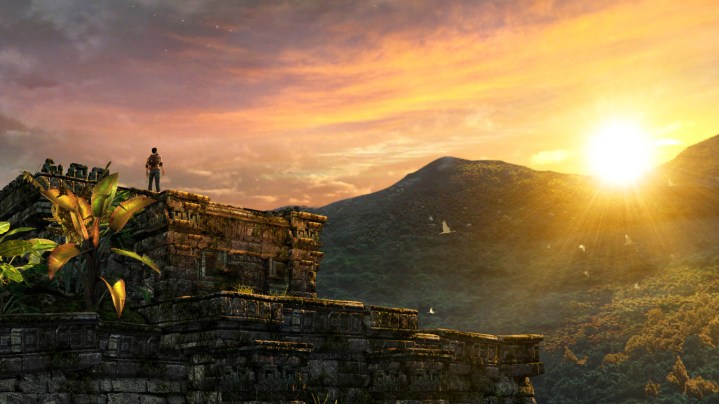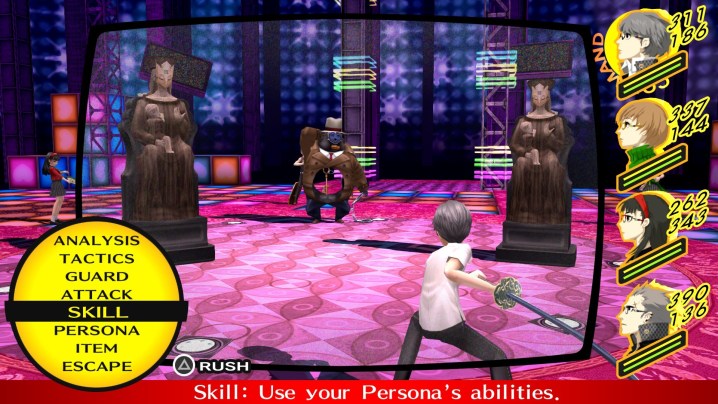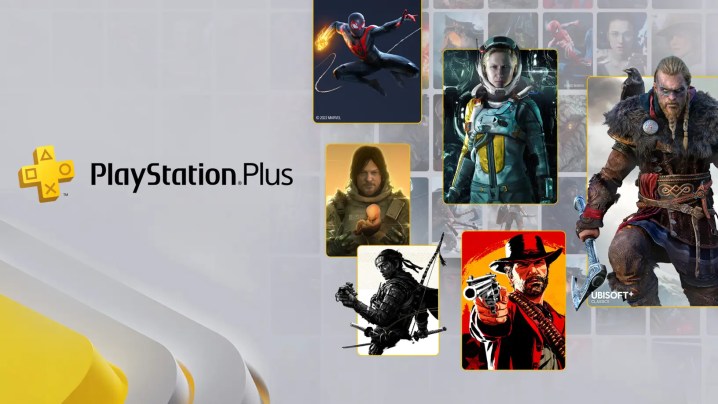It’s hard to imagine that Sony was a major player in the handheld console race less than 10 years ago. The console giant found success with the PSP in the 2000s and looked to push its advantage in 2012 with the PlayStation Vita. That didn’t quite go as planned.
The PlayStation Vita was a commercial failure for Sony, with the company pulling first-party support relatively early during its lifespan in 2014. The handheld had a dedicated fanbase and some great exclusive titles worth owning, but it was clear that Sony had lost faith in it.
As a result, Sony may never create another dedicated handheld gaming device ever again. However, it doesn’t need to: Valve’s handheld machine, the Steam Deck, acts like the successor to the Vita. This is all thanks to Sony’s newfound support for the PC platform. With past select PlayStation 4 and upcoming
Past ghosts
The Vita was home to a few blockbuster exclusives, especially Uncharted Golden Abyss and Killzone Mercenary. Uncharted was one of PlayStation’s premiere franchises at the time, so being able to play an Uncharted game on the go with stunning graphics was a major selling point for the handheld. Killzone Mercenary was an incredible first-person shooter experience that utilized a mission-based story structure to complement the system’s pick-up-and-go nature.
Sony stopped creating handheld experiences like that when it ended support for the Vita. Since then, it’s been solely focused on its console games, but PlayStation’s venture into the PC space has inadvertently brought the Vita’s handheld vision back to life.

So far, PlayStation Studios has released three games onto Steam: God of War (2018), Days Gone, and Horizon Zero Dawn. Marvel’s Spider-Man Remastered and Uncharted: Legacy of Thieves Collection are slated to launch this year on Steam as well. Other non-first-party PlayStation console exclusive games, such as Death Stranding and Detroit: Become Human are on Steam too. And all of those games are now accidental portable experiences thanks to the Steam Deck.
With the Steam Deck, Sony now doesn’t need to provide its own proprietary technology to enable high-end console gaming on the go. Valve is taking care of that. While not every game works perfectly with Steam Deck yet, that number is increasing every day. PlayStation will also continue to add more games to PC too, as Returnal’s PC listing had previously leaked.
Cloud Save is the new cross-save
The PlayStation Vita supported cross-save between many of its games with PlayStation 3 and 4 versions. That means you could play the game on your home console, and then play them on your Vita when you’re on the go. Your save data would copy to the cloud, and then your Vita would pull from it.
However, not all games supported cross-save, including notable titles like Rogue Legacy and Hotline Miami. The process wasn’t frictionless either. Some cross-save supported games could sync automatically to the cloud, but others required you to manually sync them every time. All those issues left the Vita’s cross-play promise underutilized — but Valve has fully realized that idea with the Steam Deck.
As long as you have an internet connection, Steam automatically updates your cloud saves when you close out of a game, so transitioning from your PC to your Steam Deck is practically effortless. Additionally, almost all games on Steam support cloud saves. While not every single game on Steam has cloud save functionality, it completely snuffs out the Vita’s selection of cross-save compatible titles.
The digital era that we’ve become so accustomed to was still developing and so cross-save wasn’t the most seamless function out there. But it was a valiant effort to make the system stand out amongst its competitors, namely the Nintendo 3DS. Cross-saving was once a defining feature of the Vita, but Steam’s approach to cloud saving handles the concept much better and feels like a natural step forward.
The Japanese game machine
When Sony dropped first-party support for the Vita, it was up to Japanese developers to keep the system alive. The handheld had some cool Japanese exclusive games, like Freedom Wars, Tales of Hearts R, and Soul Sacrifice: Delta. Surprisingly, they haven’t been ported to any other system and remain exclusive to the system to this day, despite their online servers having been shut down late last year.
The critically acclaimed Persona 4 Golden was a Vita exclusive for eight years until it was ported to Steam in 2020. There are some other Japanese franchises that were released on Vita and PC, such as Hatsune Miku, which received a whopping three separate entries on Vita.

Japanese publishers started embracing the PC platform more in the mid-2010s when the Vita was still receiving support. The latter half of the Vita’s life cycle was defined by Japanese developers still putting out games for the system, including XSeed with the Legend of Heroes franchise, and Square Enix with the Final Fantasy X and X-2 remaster. The handheld was known for its bevy of visual novel games by publishers like Aksys Games.
While these games were released on Vita, they were also released on PC. As such, almost every Japanese game nowadays sees a PC release, which means that they are also playable on Steam Deck. With big companies like Capcom and Bandai Namco now supporting PC games, the Steam Deck feels like it’s picking up where the Vita left off as a dream machine for Japanese games.
Streaming seals the deal
One of the cool abilities that the Vita had was that you could stream PS4 and PS3 games to the handheld via Remote Play while you were away from your consoles. I remember playing Persona 5 on my Vita at my parent’s house, hundreds of miles away from my apartment where my PS4 was. Sony has continued to iterate on this idea by adding iOS and Android devices as compatible platforms.
Due to the flexible nature of Steam Deck, you can easily replicate that Vita function with virtually any PlayStation game. PlayStation recently streamlined its PS Now and PS Plus services into one, called New PlayStation Plus, where players can stream a catalog of games to their PS4 and PS5 consoles, as well as their PCs. Steam Deck users have found ways to stream the service to the device, turning it into a true PlayStation handheld.
Sony’s entire available catalog of games on the streaming service can be played on the Steam Deck, even ones that don’t have native PC releases yet. This includes first-party games like inFamous, Ghost of Tsushima, and Gravity Rush, as well as
With the Steam Deck, there are no walled gardens. Along with being able to run new PlayStation Plus games, the handheld can also install Xbox Game Pass, as well as play games from the Epic Game Store launcher, its direct competitor.

The technology, with its cloud saves, provides a much smoother experience than the Vita’s cross-save function. Even the most graphically intensive and huge AAA games like
Theoretically, almost every game you could ever want to play can be on Steam Deck, considering the universal support for PC gaming. Valve has leveraged this aspect in a way that Sony never could fully realize with the Vita, which relied mainly on PlayStation’s own support.
Sony never needed to follow up on the PlayStation Vita. It just needed a company like Valve to finish what it started.



